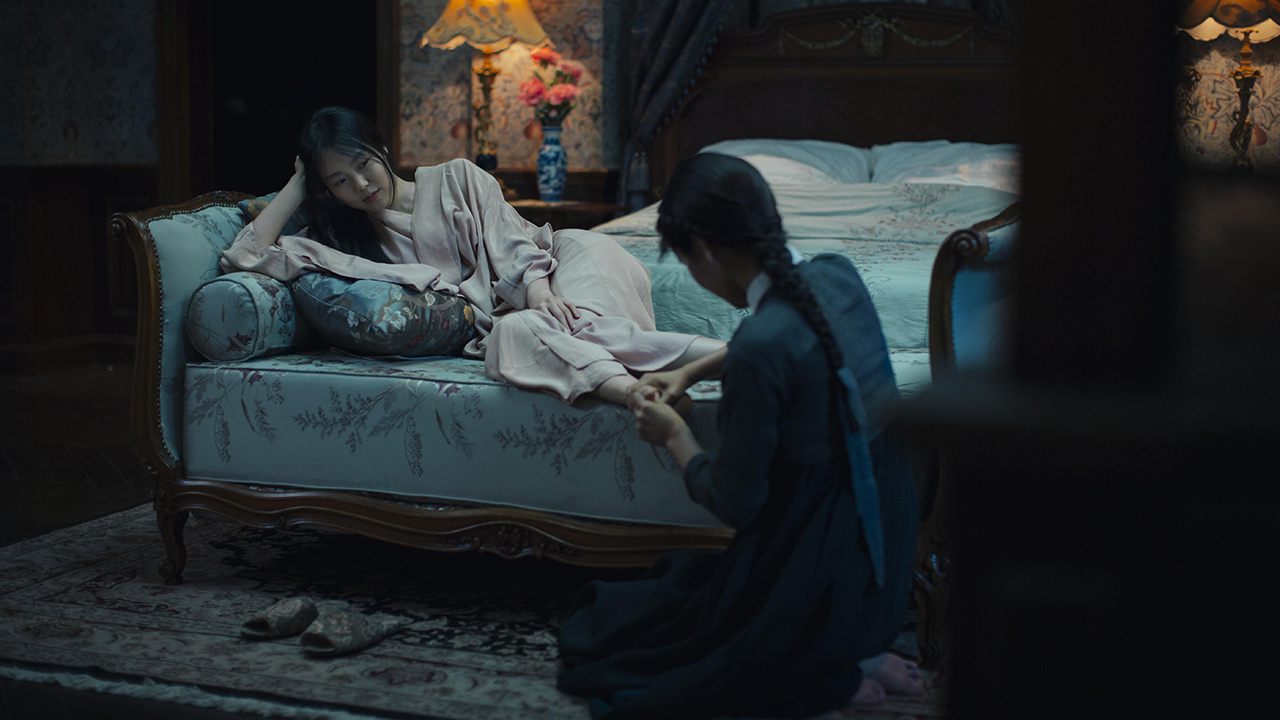The Handmaiden reaction: Cannes 2016

Park Chan-wook’s competition entry is a seductively shot erotic thriller that locates a genuine erotic charge between its two female leads, while the men in the picture are seen to be bores and boors.
Recalling Chan-wook’s last film, Stoker, in its visual elegance, The Handmaiden fetishizes not only props, costumes and production design, but also storytelling, with pieces of the serpentine plot moved lovingly this way and that to replay events from different angles. It makes for a treat for the eyes and the brain, almost justifying the two-and-a-half-hour runtime. But compared to such similarly good-looking Cannes swoon-fests as, say, Wong Kar-wai’s In The Mood For Love or Todd Haynes’ Carol, The Handmaiden (Agassi) possesses a nagging emotional emptiness beneath its surface charms.
Transposing Sarah Waters’ Victorian Britain-set novel Fingersmith to 1930s Korea, during the Japanese occupation, this sees Sookee (Kim Tae-Ri) hired as a handmaiden to Japanese heiress Hideko (Kim Min-Hee), who lives with her domineering Uncle (Cho Jin-Woong). But Sookee has a secret: she has wrangled this job with the devious aid of a conman who is posing as a Japanese Count (Ha Jung-Woo).
The reason for the deception is so that Sookee can convince the heiress to fall in love with the Count. Once this is accomplished and is cemented in a marriage certificate, the Count will have Hideko locked up in an asylum so that he might take her fortune for himself.
That, pretty much, is chapter one of this three-part film. Parts two and three toggle backwards as well as forwards, spying events from fresh angles until The Handmaiden resembles a handsome puzzle box.
While Chan-wook frequently goes the Age Of Innocence route of finding quivering eroticism in the briefest touch, slick of the lips or even the delicate nibbling of a few grains of rice, he is clearly not of the Jermaine Stewart belief that we don’t have to take our clothes off to have a good time. The sex here is sweaty, frequent and relatively graphic, and is sure to resurrect the complaints aimed at Blue Is The Warmest Colour director Abdellatif Kechiche – namely, that this is lesbian lust seen through the male gaze.
And while it’s hard to argue against that, it should also be pointed out that the sex, and everything else, only becomes perverse or grotesque when either of the two male characters are involved, and the passion on display is key to the plot.
Bringing all the latest movie news, features, and reviews to your inbox
One thing is certain: women come out on top in Chan-wook’s playful game of gender politics.
Jamie Graham is the Editor-at-Large of Total Film magazine. You'll likely find them around these parts reviewing the biggest films on the planet and speaking to some of the biggest stars in the business – that's just what Jamie does. Jamie has also written for outlets like SFX and the Sunday Times Culture, and appeared on podcasts exploring the wondrous worlds of occult and horror.


